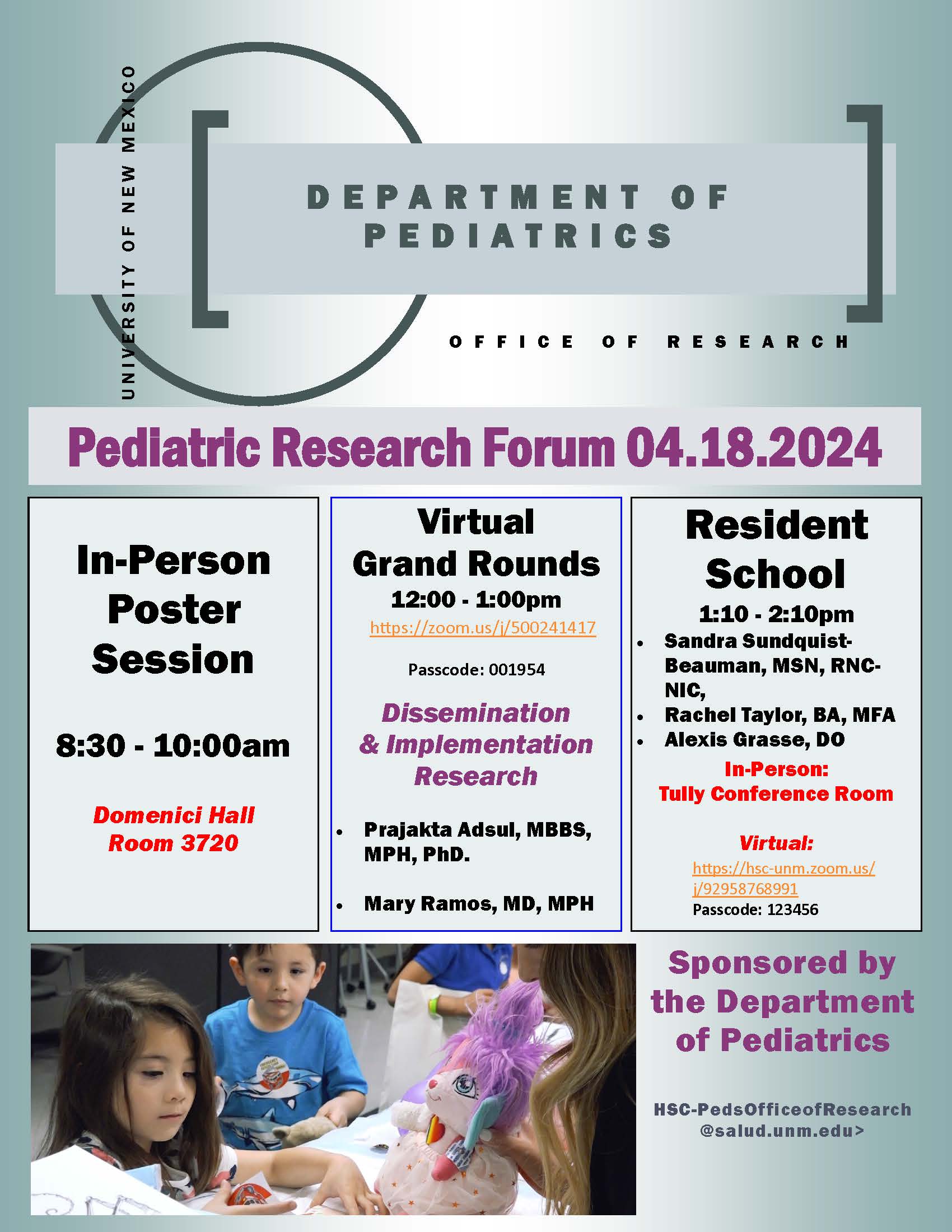Document Type
Poster
Publication Date
4-18-2024
Abstract
Background:
Neonatal opioid withdrawal syndrome (NOWS) occurs following in utero opioid exposure and prolongs newborn hospitalizations. NOWS severity has traditionally been assessed using the Finnegan Neonatal Abstinence Scoring Tool (FNAST). In recent years, the Eat, Sleep, Console care approach (ESC) was developed and has been rapidly adopted. This research proposed to compare various outcomes in infants managed with FNAST vs ESC.
Methods:
This study was a multicenter, stepped-wedge, cluster randomized trial which evaluated infants who were ≥36 weeks gestation and managed for NOWS at one of 26 sites Hospitals were randomized to transition from usual care (UC) with the FNAST to ESC at an allocated time. The primary outcome was time from birth until medically ready for discharge Adverse outcomes were assessed through 3 months postnatal age using composite safety outcomes
Results:
Analysis included 1305 infants, 702 managed with Usual Care (aka FNAST) and 603 managed with ESC. Infants in the ESC group were medically ready for discharge at 8.2 days, whereas infants managed with FNAST were medically ready for discharge at 14.9 days Infants cared for with ESC were about 66% less likely to receive pharmacologic treatment with opioids—19.5% for ESC versus 52% for FNAST Safety outcomes at 3 months of age were similar between both groups
Discussion:
After adjustment for covariates, infants managed with ESC had a lower weight z-score on DOL 3 and higher maximum weight loss during the birth hospitalization, but no differences in growth at discharge. Infants in the ESC group were more likely to receive fortified formula (>20 kcal/oz) during the hospital stay, but not at hospital discharge Breastfeeding outcomes were not significantly different after adding pharmacologic treatment into the model, which suggests that differences in breastfeeding outcomes were driven mostly by significantly less pharmacologic treatment in the ESC group
Conclusions:
In this trial, infants managed with ESC lost more weight and received more >20 kcal formula during the hospital stay, but growth at discharge was not different. There was more breastfeeding in ESC, but this difference was driven by less pharmacologic treatment. Length of stay was significantly less in the ESC group also related to less pharmacologic treatment. A subpopulation of participants are being evaluated for neurodevelopmental outcomes at 2 years of age.
Recommended Citation
Beauman, Sandra; Jessie R. Maxwell; Sarah Sanders; Elizabeth Kuan; Jennifer Montoya; Conra Lacy; Alberta S. Kong; Anne Hittson; Hengameh Raissy; and ISPCTN Clinical Sites. "EAT, SLEEP, CONSOLE Versus Usual Care for Neonatal Opioid Withdrawal." (2024). https://digitalrepository.unm.edu/hsc_2024_pediatric_research/4

